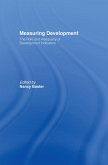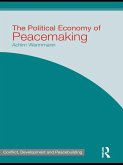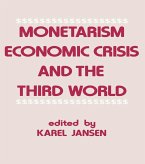First Published in 1983. This book is a contribution to the debate about Monetarism as an economic policy, and whether and how Monetarist policies can contribute to solving the current economic crisis. The diverse backgrounds and opinions of the distinguished economists writing in this volume, some supportive and some critical of Monetarism, ensure a variety of interpretations of the causes of, and responses to, the crisis. Overall, however, the book lays emphasis on two related factors which are frequently neglected in the current debates. Firstly, that the current economic crisis is a world crisis which is felt concomitantly, though in different forms and with different intensities, in the industrial countries, in the countries of the socialist bloc, and in the Third World. And although its manifestations in the industrial and in the developing countries have been quite different, the proposed policy answer has been fairly homogeneously Monetarist. Secondly, the message occurs throughout the book that in today's highly integrated world economy, national economic policies have lost much of their autonomy; Monetarist policies should therefore be assessed as to their consistency with external conditions and their effects on other countries. The contributors analyse the manifestations of the economic crisis in various parts of the world and give their individual views on Monetarist policies. Obviously there is no agreement, but that is not the purpose of this volume: its aim is to place the Monetarism discussion in the international context in which it should be conducted.
Dieser Download kann aus rechtlichen Gründen nur mit Rechnungsadresse in A, B, BG, CY, CZ, D, DK, EW, E, FIN, F, GR, HR, H, IRL, I, LT, L, LR, M, NL, PL, P, R, S, SLO, SK ausgeliefert werden.









